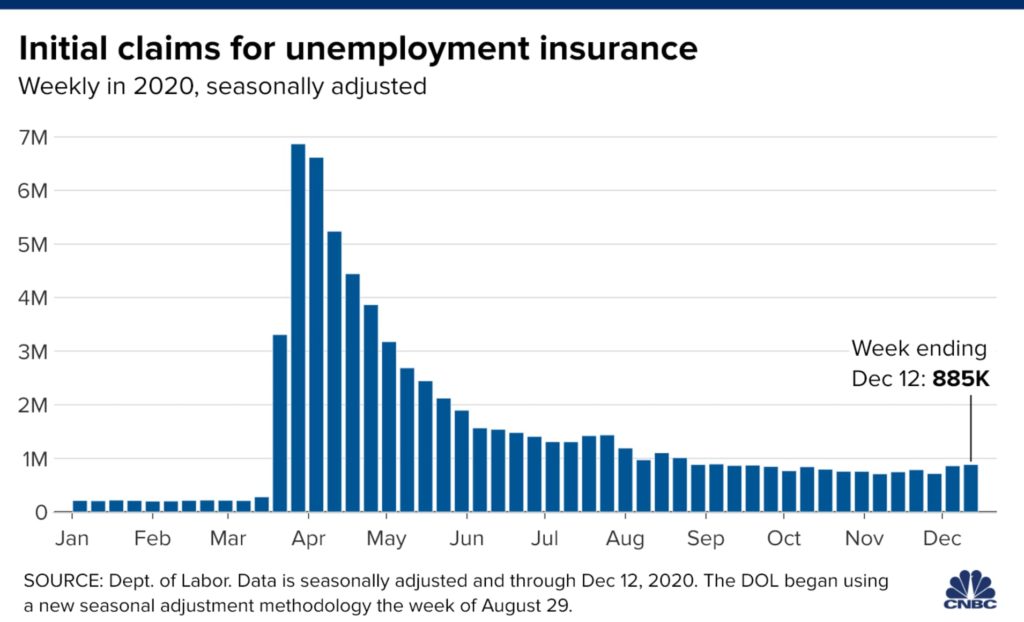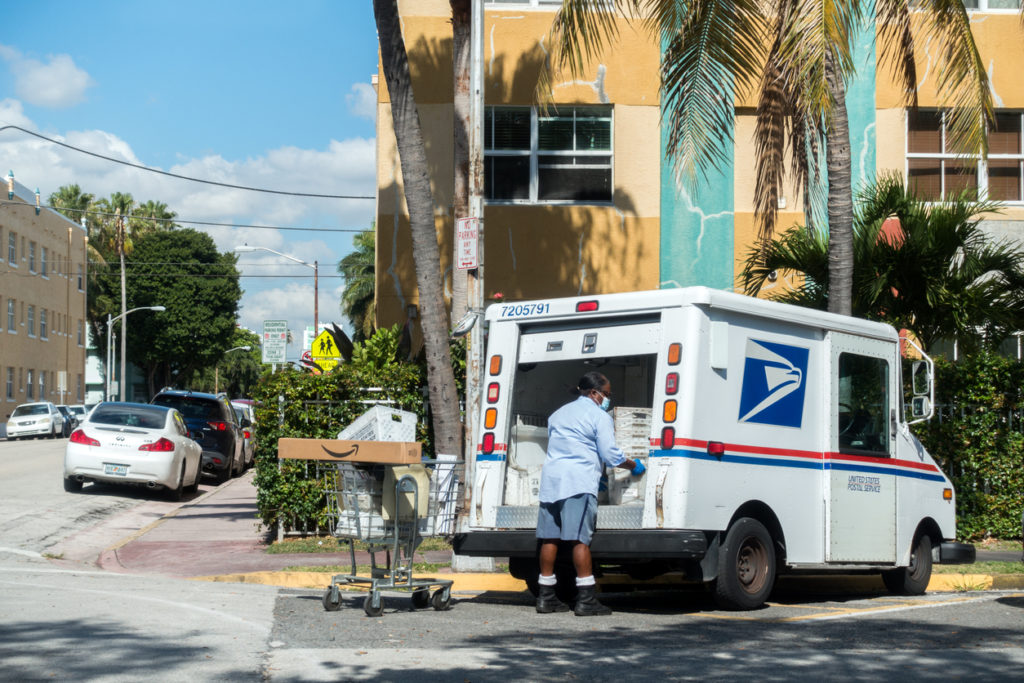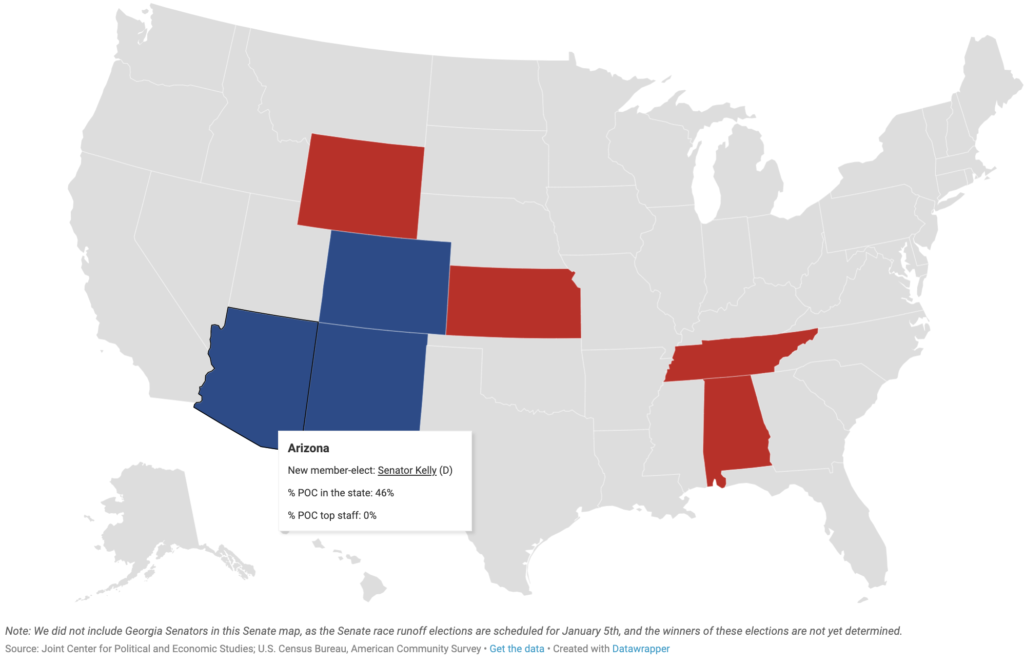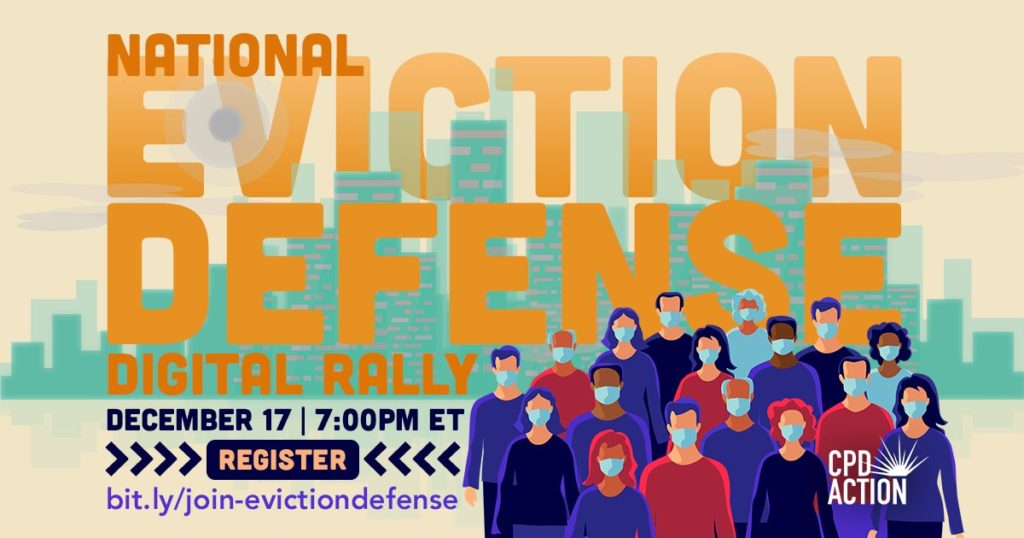
Stimulus Pending, Black Women Appointed to White House Spots: Dec. 24 Joint Center Roundup
Our Joint Center’s weekly roundup includes the latest updates key to Black communities on the Biden-Harris administration, COVID-19 policy, tech policy, economic policy, and Hill diversity. We’ll take a holiday break next week and will return in 2021. Happy holidays!
Congress Passes Stimulus, but Unclear Whether Trump Will Sign
This week, both chambers of Congress passed a $2.3 trillion bill that allocated $900 billion for coronavirus relief and $1.4 trillion to keep the government running beyond next Monday. President Trump, however, responded that he will sign the bill only if direct payments to individuals are increased from $600 to $2,000. Democrats reconvened today to pass a bill that includes the $2,000 in individual payments, but they were blocked by House Republicans. If the president does not sign a bill, two unemployment programs will expire on Saturday, which Columbia University researchers estimate would push almost 5 million people into poverty.

What’s in the Stimulus Bill? In addition to a payment of up to $600 for each individual in eligible families (no payments are available for individuals earning over $99,000), the bill provides enhanced federal unemployment insurance of $300 per week, Pandemic Unemployment Assistance for freelancers and contractors of $100 per week, $285 billion for additional loans to businesses with fewer than 300 employees (including $12 billion specifically for minority-owned businesses), almost $70 billion for vaccines and other public health measures, $25 billion in rental assistance, $13 billion for increased nutrition assistance (e.g., SNAP increases, food banks, and pantries), and $7 billion for expanded broadband access (including $50 per month per low-income family and $285 million for HBCUs for broadband). Click here for a 29-page House summary of the bill, here for the full text of 5593-page bill, and here for the Joint Center’s report Pandemic Relief Priorities for Black Communities (which addresses many of the issues in the legislation passed this week).
Biden Transition News
Biden-Harris White House Appointments: The Biden-Harris transition announces several Black staff taking on key White House roles, including Danielle Conley (left) as Deputy Counsel to the President, Joelle Gamble (second left) as Special Assistant to the President for Economic Policy, Amijah Townsend-Holmes (second right) as Press Assistant, and Elizabeth Wilkins (right) as Senior Advisor to the Chief of Staff.
Biden Treasury Leaders Janet Yellen and Wally Adeyemo meet with CDFI and MDI CEOs: The meeting of the President-elect Joe Biden’s picks to be Treasury Secretary and Deputy Secretary with CEOs of Community Development Financial Institutions and Minority Depository Institutions covered additional stimulus money for CDFIs and other issues to ensure expanded banking and lending services in communities of color. Attendees included Lisa Mensah (Opportunity Finance Network), Brian Argrett (City First Bank), Bill Bynum (Hope Credit Union), Donna Gambrell (Appalachian Community Capital), Calvin Holmes (Chicago Community Loan Fund), Inez Long (Black Business Investment Fund), and Darren Williams (Southern Bancorp). Earlier this year, the Joint Center spoke with one of the meeting’s attendees, Opportunity Finance Network CEO Lisa Mensah, to discuss the role of CDFIs in supporting Black-owned businesses during the COVID-19 crisis.
Vilsack meets with Black farm advocates including Shirley Sherrod: Agriculture Secretary-designee Tom Vilsack virtually met with a group of Black rural advocates, including Shirley Sherrod, a civil rights icon who Vilsack wrongly terminated while he was Agriculture Secretary during the Obama Administration. Sherrod indicated that she “holds no ill will” toward Vilsack.
“What Will It Take to Get a Black Woman on the Supreme Court?” The New Yorker explores this question, and asserts that the answer is connected to the Georgia U.S. Senate run-off.
Voting News
Georgia’s influence grows: African Americans have composed 48 percent of the increase in the eligible voter population in Georgia since 2000, according to Pew Research, a demographic shift seen as key to President-elect Biden’s narrow victory there in the presidential election. With a run-off election on Jan. 5 for two seats that will determine control of the Senate, Georgia is being tagged as an emerging battleground state in elections. House Majority Whip James Clyburn (D-SC) expresses his concern that run-off elections suppress Black representation and should be discontinued.
COVID-19

Unemployment spikes: With rising coronavirus cases, initial unemployment claims spiked to 885,000 for the week ending December 12. The pre-pandemic initial weekly claims record was 695,000, set in 1982.
Vaccine skepticism and Black women: With only 42 percent of African Americans telling Pew Research they would take a COVID-19 vaccine, a group of scientists, doctors, and educators is working to build confidence about the vaccine in Black communities. Black women are considered key to inspiring trust, though one poll finds that only 19 percent of Black women in Massachusetts were willing to be vaccinated as soon as possible, compared with 36 percent of Black men.

Trusted sources: A study reveals that African Americans consider the Black church a reliable source of COVID-19 information, underscoring the potential of these community institutions to help overcome vaccine resistance in Black communities.
Coronavirus behind bars: Black women are much more likely to suffer the fear and anxiety of having a loved one behind bars with coronavirus, a new report shows. African Americans compose 40 percent of the U.S. incarcerated population, and one in two Black women has a family member in prison.
Economic Policy
Financial worries grow: The moratorium on evictions set to expire on Dec. 31 is a bigger threat to Black and Latina/o tenants. Recent census data shows that 40 percent of Black and 35 percent of Latina/o renters have no or slight confidence in their ability to pay rent (vs. 21 percent of white renters). In further signs of struggle, Black and Latina/o adults in early December were more than twice as likely as white adults to report that their household didn’t get enough to eat (22 and 21 percent respectively vs. 9 percent), according to the Center on Budget and Policy Priorities. Meanwhile, NPR looks at how some higher-income households are struggling financially during the pandemic.
Housing insecurity grows: Black women are at higher risk for housing insecurity due to the pandemic’s economic fallout, a new report shows, with 27 percent of Black women spending more than half their income on rent and 49 percent spending more than 30 percent of their income on rent.
Poverty surges: Real-time poverty estimates track a sharp spike in recent months (to 11.7 percent). Black Americans saw the sharpest increase, with poverty rates reaching 21.3 percent by November.

Support the USPS: The U.S. Postal Service is a critical service and a good employer for workers without a Bachelor’s degree, particularly for Black workers, who make up almost one in four postal workers, and the Economic Policy Institute calls for its expansion for the good of the American public.
Future of Work & Learning
Job mobility needed: Noting the higher unemployment rates for Black and Latina/o workers during the pandemic, the Brookings Institution advocates for more economic relief and stimulus to restore full employment and economic activity. Brookings also calls attention to the pandemic-related challenges facing HBCUs and urges Congress to reform higher education institutions, workforce training systems, and collective bargaining structures.

Workplace of the future: Six in ten Americans think COVID-19 changed the way we work for the better, according to the Forbes Human Resources Council. The council offers five tips to re-imagine the workplace post-COVID: 1) accelerate the digital transformation; 2) create better employee experiences; 3) embrace a hybrid work environment; 4) master virtual events; and 5) revisit creative cost containment and benefits.
Tech Policy
Facial recognition technology under fire: Boston Celtics players called the inclusion of facial recognition technology in police reform legislation in Massachusetts a threat to racial justice. Facial recognition technology produces erroneous matches leading to the wrongful arrests of Black men.
Can Silicon Valley self-police AI? Members of Google’s Ethical Artificial Intelligence team are calling on CEO Sundar Pichai to rehire and promote scientist Timnit Gebru, a Black woman who led the team prior to her firing. Timnit says she was dismissed over a research paper dispute and her letter criticizing the company’s treatment of women and people of color. The Washington Post reported yesterday that the episode “raises doubts about Silicon Valley’s ability to self-police, especially when it comes to advanced technology that is largely unregulated and being deployed in the real world despite demonstrable bias toward marginalized groups.”
Hill Diversity

Tracking whether newly-elected Members are hiring diverse staff: The Joint Center launched an interactive tracking tool to show how newly-elected Members of Congress fare in hiring diverse top staff (chiefs of staff, legislative directors, and communications directors) in their Washington, DC offices.
So far, newly-elected U.S. Senators have hired top staff that are less diverse (16.7% are people of color) than the U.S. population (40%), but more diverse than hiring by newly-elected Senators last Congress (7.7%) and the entire U.S. Senate in 2020 (11%).
Newly-elected U.S. House Member top staff hiring (12.2% are people of color) lagged behind the U.S. population (40%). These Members are also hiring less diverse top staff than the top staff of newly-elected House Members two years ago (19.85%), and the top staff of the entire House in 2018 (13.7%).
Movement Building
Black Voters Matter BVM caravan continues their “Let’s Do It Again” bus tour to reach Black voters in Georgia ahead of the Senate run-off.

Center for Popular Democracy (CPD) Action and several other civil rights organizations host a digital rally to advocate for universal eviction protections.
Color of Change creates a #ChangeMusic roadmap outlining recommendations that could increase the number of Black people and other communities of color in key roles in the Recording Academy including “voting members, musicians, producers, recording engineers and other recording professionals.”
Higher Purpose Co. launches a statewide business membership program that offers mental health support for Black entrepreneurs, farmers, and artists in Mississippi in response to feedback from Black entrepreneurs at the onset of the pandemic.
NAACP Legal Defense and Education Fund, Inc. (LDF) President and Director-Counsel Sherrilyn Ifill discuss the intersection of race and food injustice with WhyHunger.
National Domestic Workers Alliance issues a campaign urging Senators to pass a COVID-19 relief package that includes critical support for essential workers, such as cash assistance and investments in home and community services.
The NAACP, Atlanta Community Food Bank, and the Lincoln Project collaborate for a holiday food drive in East Atlanta to engage with community members and educate voters.
Events
Upcoming events include “A conversation about racial justice and worker mobility” (Brookings Institution, January 6); “Why Black America needs a Tech New Deal”(Brookings Institution, January 6); “Free Speech Project: Section 230’s Fate Under the Biden Administration” (New America, January 13); “A new path to education reform: The next chapter on 21st century skills”(Brookings Institution, January 13).
Last week, events were held by Black Futures Lab, Black to the Future Action Fund, Brennan Center for Justice, Brookings Institution, Economic Policy Institute, Politico, National Urban League, Third Way, and the Urban Institute.
Podcast
Native Communities and COVID-19 (Urban Institute)
The Joint Center thanks the Annie E. Casey Foundation, the Boulé Foundation, the Democracy Fund, Toyota Motor North America, Inc., UPS, and the Walmart Foundation for additional support that has allowed us to do some of our COVID-19 and Black Communities work.
To receive the Joint Center’s emails, sign-up here.
Join our exclusive newsletter community that’s at the forefront of driving change for Black communities in America.
Stay informed, engaged, and empowered – subscribe now to amplify your impact and be part of a movement dedicated to dismantling barriers and fostering true freedom for Black Americans.

